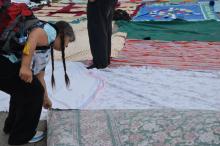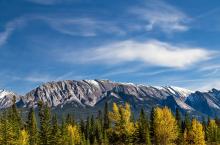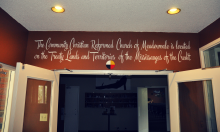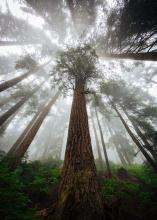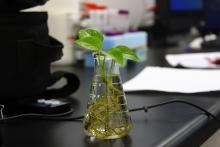Have you ever seen a tree so large that as you walked towards it you could not see the top and all perspectives of height began to whirl within you?
We live in a land that was once covered in trees so expansive that you would have to make a concerted effort to walk around them. Trees that stood for generations. Trees that were nourished by salmon carcasses strewn about the forest by eagles, wolves, and bears. Trees that welcomed new life into the world, provided clothes and baskets, and then stood watch as lives waned and returned to the earth.

